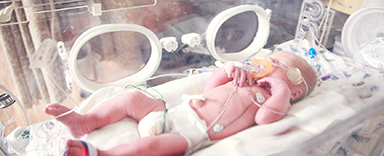ICH016 - IBWC Supporting Someone Who Has Their Baby in the NICU
Course Description

The Neonatal Intensive Care Unit (NICU) can be an overwhelming and emotional place for babies, parents, and the people who support them. For Indigenous families, it may also carry layers of historical trauma, medical racism, and cultural disconnection. As a birth support person, your presence, knowledge, and advocacy can make a transformative difference. This course offers a foundation of supporting NICU families with compassion, cultural grounding, and clarity. We invite you to move through the course with openness, empathy, self-reflection, and self-care.
TRC Calls to Action
Health #18, #19, #20, #22, and #23
 This course supports the TRC Calls to Action in the health sector. This course exists today because of the Truth and Reconciliation Commission's Calls to Action supporting Indigenous health.
This course supports the TRC Calls to Action in the health sector. This course exists today because of the Truth and Reconciliation Commission's Calls to Action supporting Indigenous health.
Learning Outcomes
Learners will gain the knowledge, understanding, skills, abilities, attitude, and awareness to:
- Describe the emotional and physiological impacts of the neonatal intensive care unit (NICU) on babies and parents.
- Apply trauma-and-violence-informed and culturally safe strategies to support families in clinical spaces.
- Explain the role of birth support workers in supporting bonding, feeding, and informed decision-making with families whose babies are in the NICU.
- Identify boundaries and practices that support the sustainability and well-being of the birth support workers.
Skills and Competencies
- Understand the short and long-term impacts of separation, stress, and medical interventions on infant development and family attachment.
- Adapt language, presence, and support strategies to reduce re-traumatization and respect cultural values.
- Work collaboratively with healthcare teams while centering the family's voice, choices, and connection with their baby.
- Use sustainable practices that promote the emotional well-being of the support worker.
- Engage in regular debriefing, peer support, and self-care strategies to prevent burnout and compassion fatigue.
Summary
-
Number of hours: 4.5 hours total

-
Assessment: To pass the course, learners must achieve a score of 80% or higher on the Knowledge Check, which allows multiple attempts. An incomplete course will count as a fail.
-
Previous education required: None; this course does not have a required prerequisite.
-
Delivery: Online, self-paced
-
Completion timeline: Within 180 days from when you enroll in the course.
-
Applies toward the following certificates: Beginner in Perinatal Support Professional MicroCredential, Intermediate in Perinatal Support Professional MicroCredential, Advanced in Perinatal Support Professional MicroCredential, or Advanced Perinatal Support Professional MicroCertificate.
FAQ's
Is this course for everyone?
- Yes, this course is relevant to anyone interested in creating an environment to support a positive birth experience.
What is the scope of this course?
- This course can be used as continuing education related to supporting the birth process. This, along with other IBWC MicroBadges, works toward a MicroCredential and MicroCertificate.
Some individuals and organizations may be GST-exempt.
- First Nations University of Canada is situated on the Star Blanket First Nation and is exempt from Provincial Sales Tax (PST). If you or your organization are exempt from Government Sales Tax (GST), please get in touch with icec@firstnationsuniversity.ca to ensure that your invoice is prepared accordingly.
I need financial support. What funding options does ICEC recommend?
- Check out our Funding Opportunities here.
Who do I contact if I need help?
- Check out ICEC's Learner Support page to see if your question is answered in the FAQs. If your question remains unresolved, feel free to complete the form with your question, or you may contact icec@firstnationsuniversity.ca for assistance with any questions. We are here to help! Support requests are received during regular office hours. Please expect a response within 24 to 48 hours.
